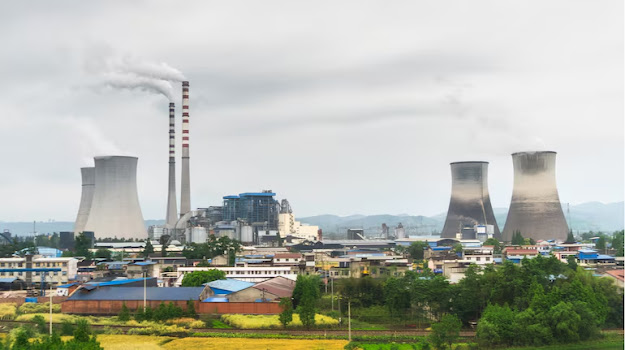Private Giants like Adani, Tata, Vedanta Reignite Interest in Coal-Fired Power After Five-Year Hiatus
India’s thermal power sector is witnessing a strong revival, with private players such as the Adani Group, Tata Power, Vedanta Group, JSW Energy, and Torrent Power making a decisive return after a five-year pause. The renewed activity comes in response to government projections estimating a requirement of at least 80 gigawatts (GW) of additional coal-fired power capacity by 2031–32.
Even public sector undertakings (PSUs) are entering or expanding their footprint in the thermal segment. Coal India Ltd (CIL), historically not involved in power generation, announced on April 21 its plans to develop a 1,600 megawatt (MW) ultra-supercritical thermal plant in partnership with Damodar Valley Corporation in Jharkhand. This is in addition to earlier announced projects in Madhya Pradesh and Odisha.
The growing demand is also evident in the surging order book of state-run Bharat Heavy Electricals Ltd (BHEL), which designs and supplies thermal power plant equipment. Its outstanding power sector orders jumped 63% year-on-year, rising from ₹96,731 crore in FY24 to ₹1,57,922 crore in FY25.
Expansion Plans in Motion
Adani Power has unveiled an aggressive growth strategy, announcing plans to add 13.12 GW of thermal capacity by FY32, boosting its total to 30.67 GW from the current 17.5 GW. The company stated in its Q4FY25 investor presentation, “Thermal power will remain the primary base load supplier for India’s growing economy and will be crucial in addressing peak demand, projected to hit 388 GW by FY32.”
JSW Energy recently initiated construction of its largest greenfield thermal project—a 1,600 MW plant in Salboni, West Bengal. Meanwhile, Vedanta aims to commission 1,300 MW of capacity at two locations in Andhra Pradesh and Chhattisgarh by the end of this fiscal year. Torrent Power also entered the fray, announcing in January a 1,600 MW coal-based project in Madhya Pradesh.
Rising Demand Fuels the Push
Experts point to rising electricity demand as a key driver. “Providing round-the-clock electricity is vital for an expanding economy like India’s,” said Gautam Shahi, Director at Crisil Ratings. He added that while thermal capacity expansion is back on the table, investments in renewable energy are also progressing steadily.
Government estimates put the capital cost for new coal-based thermal capacity at around ₹8.34 crore per MW (based on 2021–22 prices), suggesting a cumulative investment of at least ₹6.67 lakh crore by 2031–32 to meet demand projections.
Vikram V, Vice President and Co-Group Head at ICRA Ltd, noted that thermal power expansion had stalled after FY2017 due to a lack of long-term power purchase agreements, execution delays, fuel supply concerns, and tariff viability issues. These factors contributed to a buildup of stressed assets in the sector. However, improving demand has revived plant load factors (PLFs) and restored investor interest in new coal-based power projects, especially from the private sector.
With energy needs on the rise, India appears poised for a significant thermal power buildout—balancing its renewable push with pragmatic fossil-fuel-based capacity to ensure energy security.



Comments
Post a Comment